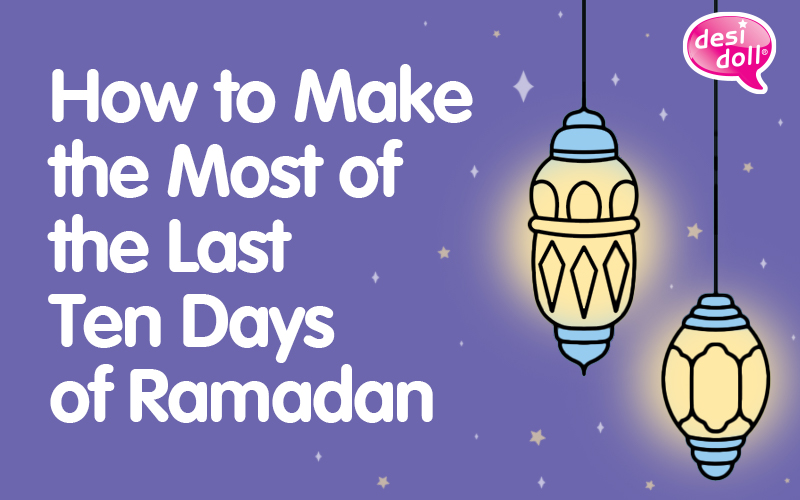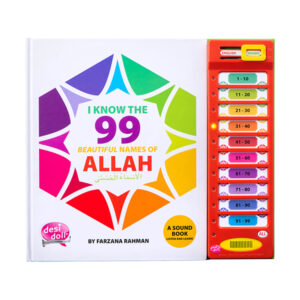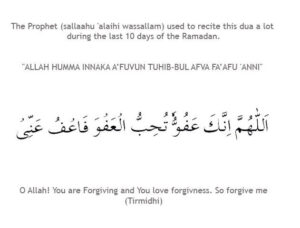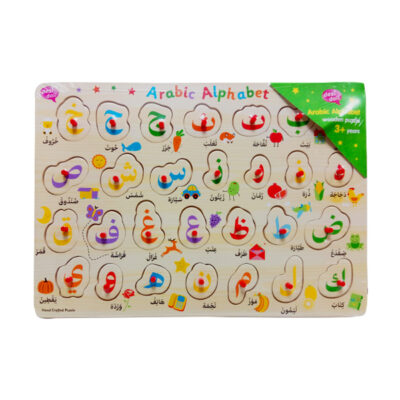Although all parts of Ramadan are full of immense blessings and reward, it is the last ten days that hold a significantly special status as mentioned in the Quran and Hadith. In light of this, it is imperative that we strive to increase our worship and devotion. Since in these ten nights resides the king of all nights, the blessed Laylat-ul-Qadr also known as The Night of Power.
Allah ﷻ says in the Quran:
‘Verily! We have sent it [Quran] down in the Night of Decree [Laylat-ul-Qadr]. And what will make you know what the Night of Decree is? The Night of Decree is better than a thousand months. Therein descend the angels and the Rooh [Gabriel] by Allah’s Permission with all Decrees, Peace! until the appearance of dawn.’ [Al-Qadr 97: 1-5]
If we feel that we have not been able to dedicate enough time to worship in Ramadan so far, then by Allah’s grace and mercy we are still able to redeem ourselves in these last ten blessed nights of Ramadan.
‘Whoever stands in prayer on Laylat al-Qadr out of faith and in the hope of reward, his previous sins will be forgiven.’ [al-Bukhari]
We should try to pay careful attention to these nights and spend them making dua, worshipping Allah ﷻ, calling Him by His beautiful names, and reading Quran. Since the blessed Laylat-ul-Qadr is hidden in the last nights we need to seek vigilantly in prayer and worship in every single night, particularly the odd nights.
Our 99 Names of Allah Sound Book is a great way for adults and children to learn the names of Allah and the dua’s connected to them, with sound and helpful illustrations. This beautifully illustrated sound book has been specially designed to help children and adults alike, memorise, understand, act upon, and make dua’ using the beautiful names of Allah.
Let’s look at some of the practical ways we can make the most of the final ten days of Ramadan:
1. Recite Quran
We should try to recite as much Quran as we can especially during the last ten nights of Ramadan, there is so much benefit to reciting and reflecting upon the Quran on normal days. Just imagine how much more reward there is for reciting in Ramadan or if we are fortunate enough to find Laylat-ul-Qadr.
The Messenger of Allah ﷺ said:
‘Whoever reads a letter from the Book of Allah will receive a hasanah [good deed] from it [his recitation] and the hasanah is multiplied by ten. I do not say that Alif-Laam-Meem is [considered as] a letter, rather Alif is a letter, Laam is a letter, and Meem is a letter.” [At-Tirmidhi, Ad-Darimi]
In a narration by Muslim, the Messenger of Allah (ﷺ) said,
“The reward of every (good) deed of a person is multiplied from ten to seven hundred times.
Now just think: each good deed could be multiplied up to 700 times in Ramadan, Subhan’Allah!
May Allah ﷻ give us the ability to use these blessed moments in the best possible way.
2. Alternate to keep your concentration
 If you begin to feel tired in your night worship then alternate to keep your concentration, so maybe pray some nawafil prayers then recite Quran and then make Dhikr of Allah’s ﷻ most beautiful names. In doing so you will find you will be able to retain concentration and be able to be in the state of worship for longer.
If you begin to feel tired in your night worship then alternate to keep your concentration, so maybe pray some nawafil prayers then recite Quran and then make Dhikr of Allah’s ﷻ most beautiful names. In doing so you will find you will be able to retain concentration and be able to be in the state of worship for longer.
May Allah ﷻ assist us in our endeavours.
3. I’tikaaf
The Messenger of Allah ﷻ said
‘He who observes the ten days I’tikaf during Ramadhan will obtain the reward of two Hajj & two Umrah.”(Bayhaqi)
and he also said
‘Whosoever for Allah’s sake did even one days i’tikaf, Allah would keep him away from Jahannam by trenches.”(Tabarani)
Subhan’Allah these days and moments are so distinguished from other days, so in Hadith and in the Quran we are constantly encouraged to devote time to reflect, pray and spend time in solitude connecting with Allah ﷻ.
If you are not able to observe i’tikaf the whole night due to your responsibilities or having small children, try to spend more time in worship than you have previously done with the intention of i’tikaf. Remember the purpose of i’tikaf is that it is a spiritual retreat where we are able to spend time focusing our attention, our heart and soul on Allah ﷻ without any distractions.
4. Special Dua for Laylat-ul-Qadr
Aisha, may Allah be pleased with her, said: I asked the Messenger of Allah ﷺ
‘O Messenger of Allah, if I know what night is the night of Qadr, what should I say during it?’ He said: ‘Say: O Allah, You are pardoning and You love to pardon, so pardon me.’ [Ahmad, Ibn Majah, and Tirmidhi]
5. Dua
One of the best acts of worship to do in these last ten nights is making lots and lots of heartfelt sincere Dua.
Abu Huraira, may Allah be pleased with him, related that the Messenger of Allah ﷺ said:
‘When the last one-third of the night remains, our Lord, the Glorious One descends towards the heaven of the earth and proclaims: Who is that who supplicates for Me, and I grant his supplication? Who is that who begs Me for anything and I grant it to him? And who is that who seeks My forgiveness, and I forgive him’ [Bukhari and Muslim]
This would simply mean getting up half an hour before the time of suhoor, to ask Allah ﷻ for His forgiveness, for good in this life and the hereafter, to pray for our parents, our children and for the acceptance of our fasts and worship.
Even if you cannot pray due to menstruating, you can always make Dua and call Allah while you are standing, sitting or lying down. You can do Dhikr and constantly recite Allah’s ﷻ name and be in a state of worship in your heart and mind.
Dua can be made using Dua’s from the Quran and Hadith and they are extremely powerful. Why not use a translation of the Quran to highlight duas. It is a beneficial way to teach kids dua too during the last ten nights of Ramadan.
You can also use your own language and make dua in your own words, creating a far more personal feeling to it. Talking to Allah ﷻ as though you are speaking to someone close to you, telling Allah your fears, worries, concerns and crying when you feel sadness overcomes you. Truly pouring your heart out at that point gives you a feeling of immense contentment and peace. Your own unique relationship and close connection with Allah ﷻ is made in this way and as you move closer to Him so will he open up your heart in so many ways. Never underestimate Dua and what it can do, Allah ﷻ always listens.
6. Evaluate
Finally, use the last ten days/nights of Ramadan to evaluate yourself and your habits. How would you like to change yourself so that you are constantly moving closer to Allah ﷻ and gaining His pleasure?
Can you be kinder, more forgiving, make more time to read Quran, make some time to learn about the Prophets ﷺ life, journey and mission?
If we truly value our religion and sincerely believe, it shouldn’t be too difficult for us to dedicate some time regularly towards learning and improving ourselves to become a better Muslim.
May Allah ﷻ guide us upon the straight path and keep us persevering and striving for His pleasure.
Your Sister
Farzana Rahman






